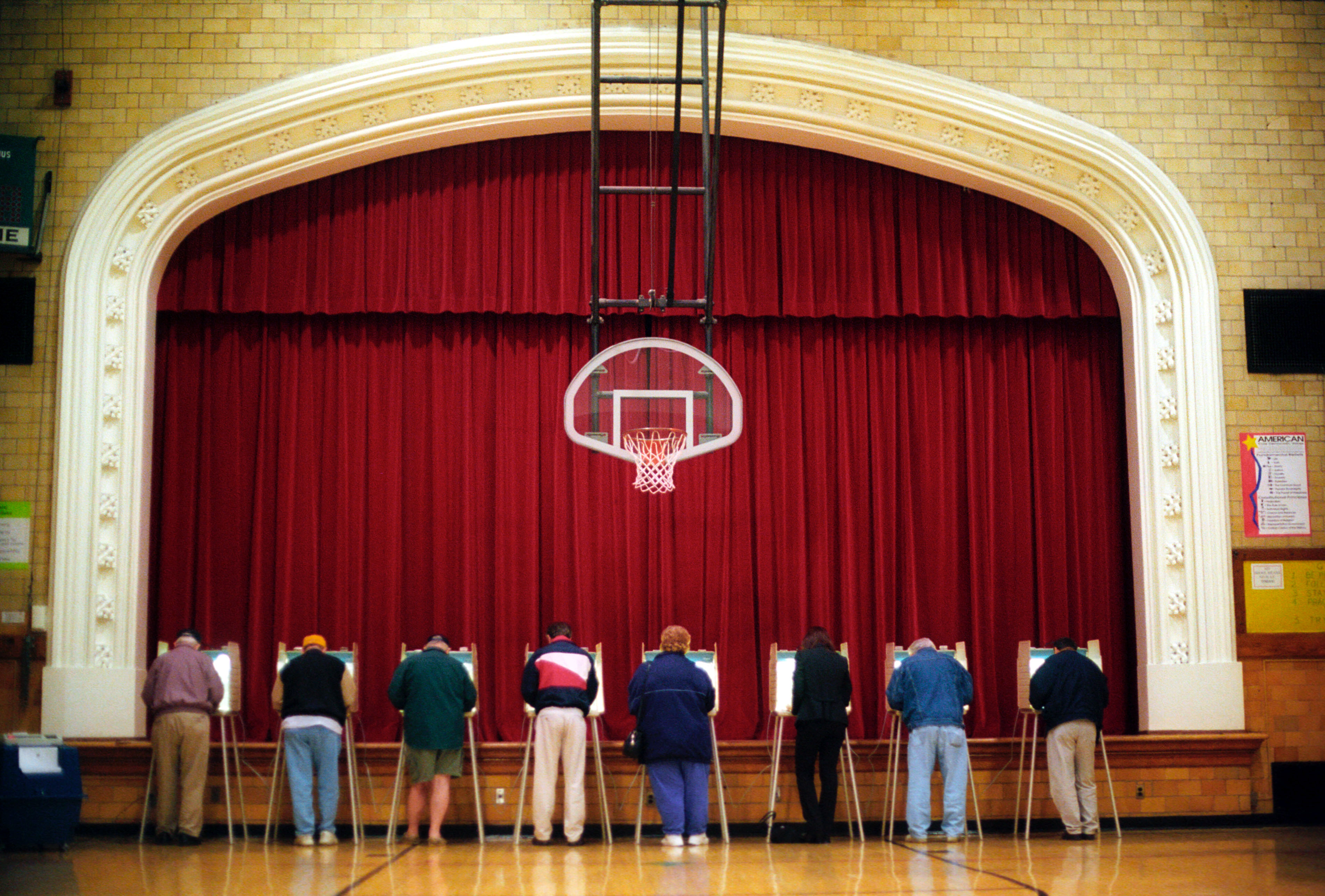American voters are politically flexible. Why aren't our parties?
Yes, you can be both socially conservative and economically progressive


In the United States, we have had only two electorally viable political parties for more than a century and a half now. One is run by center-right economic moderates who pretend to have convictions about the so-called "social issues" — abortion, civil rights, homosexuality, sex-neutral bathrooms, contraception, and so on. The other is the GOP.
We are so used to hearing about the problem of divided government that we forget about the degree to which our two parties agree on a huge number of important issues. The average member of Congress — Republican or Democrat — takes a hawkish line on the Middle East, thinks that same-sex marriage is a dead letter, and supports free trade and fracking and levels of taxation that make President Eisenhower look like a socialist by comparison.
The strangest thing about the positions held by nearly everyone in American political life is that virtually none of the voting population supports them 100 percent. The Democratic base agrees with such woke specimens as House Minority Leader Nancy Pelosi about gay marriage, but hates the Democrats' terrible foreign policy, which has all the bad consequences of the GOP's but brings none of the cowboy cred that their opponents usually manage to wrangle out of their support for moronic wars.
The Week
Escape your echo chamber. Get the facts behind the news, plus analysis from multiple perspectives.

Sign up for The Week's Free Newsletters
From our morning news briefing to a weekly Good News Newsletter, get the best of The Week delivered directly to your inbox.
From our morning news briefing to a weekly Good News Newsletter, get the best of The Week delivered directly to your inbox.
Meanwhile, only something like half of Republican voters claim to agree with their party about economic issues. Hard as it is to believe, not everyone in Texas and Kansas and Oklahoma is an oil tycoon or the owner of one of those quasi-mythic small businesses about which party leaders are wont to speak in tones of awe. A woman who works at a CVS in Lincoln, Nebraska, is far less likely than the average American to think that abortion is a constitutional right — but she probably thinks health care is one, even if she wouldn't necessarily phrase it that way, and is not exactly reassured by the solemn promise that one day she might be able to consign a slightly larger amount of her miniscule wages to a health-savings account.
The myopia separating the Republican Party from the economic interests of the voters upon whom they depend is one of the many interesting lessons to be gleaned from a new report published by Lee Drutman of the Voter Study Group. As F.H. Buckley has observed in The Wall Street Journal, it goes a long way toward explaining why the last presidential election went the way it did.
Hillary Clinton ran in 2016 as a Burkean conservative. Her campaign was premised on the idea that, in general, things are basically fine as they are, and that any radical steps away from the status quo should be regarded with suspicion.
We do not need single-payer health care, she argued; we need to tinker with the Affordable Care Act. We do not need to restore Glass-Steagall or do anything else in particular to rein in Wall Street. The economy is not bad at all: It is doing very well, just like President Obama says it is, and it will be doing better if we can just dump money into [drops note cards] uhh, computers, the internet, things like that. Gay marriage is good now even if it wasn't when my husband signed the Defense of Marriage Act because it's the law.
A free daily email with the biggest news stories of the day – and the best features from TheWeek.com
Unfortunately for her, a significant portion of the American electorate is not made up of people looking to preserve the status quo. The voters who swung from President Obama to Donald Trump last year in states like Wisconsin and Michigan and Ohio are at once reactionaries and progressives, people who reject abortion and gender-neutral bathrooms and support a strong, robust welfare state and want to repeal NAFTA. They see through the lie of the debt-financed service economy and the college hustle that has created a quasi-permanent serf class.
Meanwhile, unlike Mitt Romney in 2012 and all 507 of his opponents in the Republican primary, Donald Trump did not present himself to voters as an orthodox adherent of their free-market religion. He railed against free trade, an issue on which his opponent was especially vulnerable. He criticized Wall Street and the financialization of the economy at the expense of ordinary workers. He even suggested that he was open to raising taxes. He did all this while mouthing along as best he could with what social conservatives think about abortion and other issues.
Appealing to voters who are socially conservative but economically moderate to progressive is, according to Drutman's study, the only way to win elections in many parts of the country. Trump voters with would-be retrograde opinions about moral issues have almost exactly the same views about the welfare state as those who supported Clinton. They are even more likely to oppose free trade than those who backed the traditional party of organized labor.
Fortunately, there is plenty of good news here for both parties. Senate Majority Leader Mitch McConnell does not strike me as a man who suffers from a surfeit of principle. It is as easy to imagine him actually caring about libertarian economics — his own personal wealth notwithstanding — as it is to picture him in lipstick and high heels. He does, however, seem to be reasonably keen on winning elections. Ditto Senate Minority Leader Chuck Schumer, who is about as ideologically committed to Human Rights Campaign talking points as a vulture is to organic produce. Both men could try to move their parties closer to that sweet spot in the upper left-hand corner where swing voters reside.
It's worth a try anyway. The only thing they have to lose is their jobs.
Matthew Walther is a national correspondent at The Week. His work has also appeared in First Things, The Spectator of London, The Catholic Herald, National Review, and other publications. He is currently writing a biography of the Rev. Montague Summers. He is also a Robert Novak Journalism Fellow.
-
 Trump’s poll collapse: can he stop the slide?
Trump’s poll collapse: can he stop the slide?Talking Point President who promised to ease cost-of-living has found that US economic woes can’t be solved ‘via executive fiat’
-
 Codeword: December 7, 2025
Codeword: December 7, 2025The daily codeword puzzle from The Week
-
 Sudoku hard: December 7, 2025
Sudoku hard: December 7, 2025The daily hard sudoku puzzle from The Week
-
 Has Zohran Mamdani shown the Democrats how to win again?
Has Zohran Mamdani shown the Democrats how to win again?Today’s Big Question New York City mayoral election touted as victory for left-wing populists but moderate centrist wins elsewhere present more complex path for Democratic Party
-
 Millions turn out for anti-Trump ‘No Kings’ rallies
Millions turn out for anti-Trump ‘No Kings’ ralliesSpeed Read An estimated 7 million people participated, 2 million more than at the first ‘No Kings’ protest in June
-
 Ghislaine Maxwell: angling for a Trump pardon
Ghislaine Maxwell: angling for a Trump pardonTalking Point Convicted sex trafficker's testimony could shed new light on president's links to Jeffrey Epstein
-
 The last words and final moments of 40 presidents
The last words and final moments of 40 presidentsThe Explainer Some are eloquent quotes worthy of the holders of the highest office in the nation, and others... aren't
-
 The JFK files: the truth at last?
The JFK files: the truth at last?In The Spotlight More than 64,000 previously classified documents relating the 1963 assassination of John F. Kennedy have been released by the Trump administration
-
 'Seriously, not literally': how should the world take Donald Trump?
'Seriously, not literally': how should the world take Donald Trump?Today's big question White House rhetoric and reality look likely to become increasingly blurred
-
 Will Trump's 'madman' strategy pay off?
Will Trump's 'madman' strategy pay off?Today's Big Question Incoming US president likes to seem unpredictable but, this time round, world leaders could be wise to his playbook
-
 Democrats vs. Republicans: who are US billionaires backing?
Democrats vs. Republicans: who are US billionaires backing?The Explainer Younger tech titans join 'boys' club throwing money and support' behind President Trump, while older plutocrats quietly rebuke new administration
